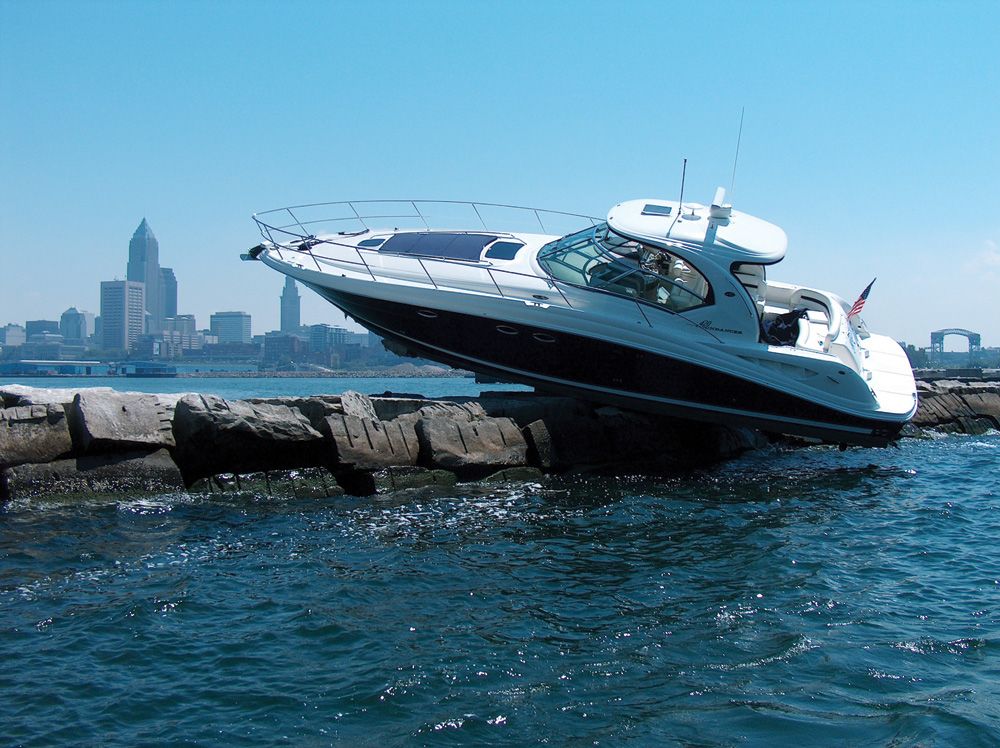Unlike autos, for which every state requires at least liability insurance, few states require that you have such coverage for your boat. Though your state may not require you to have insurance, your bank, marina, and many organized boating events may require it. Also, most marinas require proof of at least liability insurance before they’ll accept a contract for a slip or a mooring. Many will want to be listed as an additional insured on the policy.
If your state, bank, or marina requires you to carry boat insurance, your homeowner’s policy will probably not be acceptable. Most homeowner’s policies don’t have the necessary provisions to cover the different types of losses that may occur with a boat, such as salvage, wreck removal, or pollution liability. Boat insurance is designed to address the specific needs of boaters, including:
Litigation: Let’s say you take someone out on your boat and hit a large wake that slams your guest down against a hard seat. Even if your guest says he’s OK, if it turns out later he’s injured you could be sued and held liable for all the medical bills as well as payments for lost time from work and even pain and suffering. Your boat policy will provide a defense attorney to represent you in such a suit, and it will pay any damages you’re found to owe (up to the limit of the liability coverage).
Investment Protection: Without insurance, you risk losing your investment to accidents or to any number of other events. A strong storm might sink your boat, a fire in a nearby boat can burn yours, or you could be the victim of vandalism. If you owe money on your boat the bank will be listed as the lien holder on the policy, and they’ll demand that you insure their risk. If any loss payments are made, the bank will be listed as a co-payee on the check.
Choosing a Policy. All-risk policies, with consequential-damage coverage for losses due to specific peril such as fire or sinking, are among the broadest recreational marine policies available today. They cover certain types of losses resulting from a failed part, even if the cause of the part’s failure is excluded. With consequential-damage coverage, for example, if a thru-hull should fail due to corrosion (a typical exclusion in marine policies) and your boat sinks, the repair or replacement of the thru-hull would not be covered, but the damages directly related to the sinking would. All-risk policies provide for a broad array of losses from an accidental cause that could befall your boat, such as theft, vandalism, lightning, fire, grounding, and sinking. When comparing policies, also look for options that protect your personal items, such as water sports equipment and fishing gear. Non-emergency towing coverage is also important to have in the event of a breakdown.
Typical recreational marine policies in the market give you the option to insure your boat in the event of a total loss for its “agreed value” (also known as “stated value”) or for the current market value (often “called actual cash value”), which may be lower than the agreed value. Generally, an actual cash value policy is less expensive. The larger the boat’s value relative to your total assets, the more important insurance becomes to protect yourself from financial loss.
At a bare minimum, even if your boat isn’t worth very much you should still consider purchasing liability insurance that doesn’t insure physical damage to your boat but provides a specified amount of coverage for your liability to others in the event of an accident, as well as protection from uninsured boaters. Policies that cover liability only, with no hull coverage, can be significantly less expensive than full-coverage policies. Note that if you already have a homeowner’s umbrella (or excess-liability) policy, it will usually require your boat policy to have certain minimum liability limits (typically $300,000, but sometimes as high as $500,000), and you should make sure there’s no coverage gap.
Boat insurance is flexible. Get quotes on several different types of policies so you can make an informed decision based on the coverage versus the cost.
(Borrowed in part from Boat US.Com)

It is important that you protect your investment. These tips are helpful, and give you a lot to think about. Thank you for sharing!